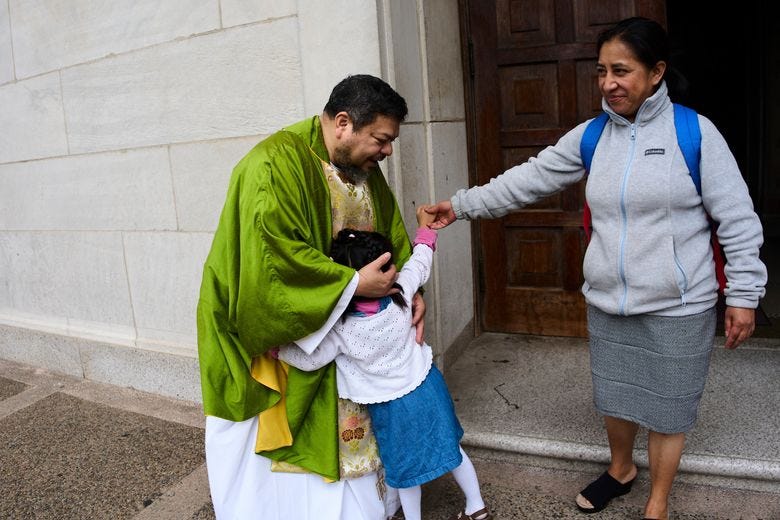Trump’s Raids Terrorize Catholics — Pope Leo’s Top Cardinal Calls It an ‘Assault on Millions’
Seminarians are leaving the country, priests worry they could be next, and Pope Leo XIV insists the Church must stand with its most vulnerable faithful.
Thank you for reading! Letters from Leo is a reader-supported publication. If you find value in my work, please consider becoming a paid subscriber or making a one-time donation.
On a recent Sunday in Washington, DC, empty pews at the imposing Shrine of the Sacred Heart bore witness to a bitter irony: in the shadow of the White House, many worshippers ar…



